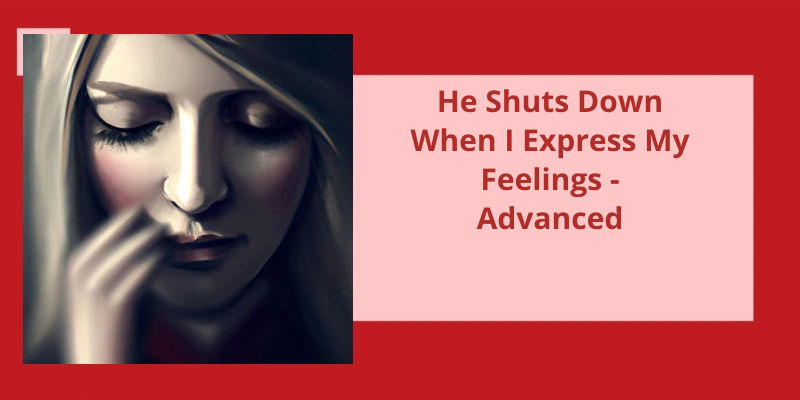When faced with the piercing sound of someone yelling, we often find ourselves experiencing an intense surge of emotions that seem to penetrate deep within our very being. But why does it hurt so much when someone yells at us? The answer lies in the profound impact it’s on our mind, brain, and body. The act of being frequently subjected to yelling can bring about a host of changes, both internal and external. It activates the amygdala, the emotional center of our brain, increasing it’s activity and flooding us with overwhelming emotions. Simultaneously, stress hormones surge through our bloodstream, leaving us feeling tense and on edge. Our muscles tighten in response to this emotional onslaught, causing discomfort and physical strain. These are just a few of the ways in which the act of being yelled at takes a toll on us, leaving us in emotional turmoil and physical distress. Understanding the deep-rooted impact of yelling can shed light on why it hurts so much, and perhaps provide us with a starting point for healing and finding healthier ways to communicate.
What Are the Psychological Effects of Being Yelled At?
When someone yells at us, the psychological effects can be profound. It can leave us feeling hurt, anxious, and deeply upset. The tone, volume, and intensity of the yelling can trigger a fight-or-flight response in our body, flooding us with stress hormones and causing our heart to race. This can lead to feelings of panic and a sense of being overwhelmed.
Being yelled at can also have long-lasting effects on our emotional well-being. It can lower our self-esteem and make us doubt our worth and abilities. The constant exposure to verbal abuse can erode our sense of self and make us feel powerless and trapped. This can lead to depression and a sense of hopelessness.
Some individuals may internalize their pain and express their feelings through anger. This can result in them becoming verbally abusive to others, perpetuating a harmful cycle of yelling and aggression.
It’s important to recognize and address these effects, seeking support and practicing self-care to heal and recover from the emotional wounds inflicted by yelling.
Coping Strategies for Dealing With Being Yelled At: Provide Practical Tips and Techniques for Individuals Who Are Often Subjected to Yelling, Including Strategies for Managing Their Emotional Response, Setting Boundaries, and Seeking Support.
- Take a deep breath and try to remain calm in the moment.
- Remind yourself that the yelling isn’t about you personally, but about the other person’s emotions or frustrations.
- Focus on your own emotions and try to understand and validate them.
- Set clear boundaries by calmly expressing that you won’t tolerate being yelled at.
- Remove yourself from the situation, if possible, to create a safe space for yourself.
- Practice self-care activities such as deep breathing exercises, meditation, or engaging in hobbies that help you relax.
- Seek support from friends, family, or a therapist who can provide guidance and help you process your emotions.
- Consider attending anger management classes or workshops to develop coping strategies and communication skills.
- Learn techniques for assertive communication to express your feelings and needs effectively without escalating the conflict.
- Practice empathy and try to understand the other person’s perspective, but also remember to prioritize your own well-being.
Conclusion
The act of yelling triggers heightened activity in the amygdala, the part of our brain responsible for processing emotions, causing us to feel overwhelmed and fearful. This, in turn, stimulates the release of stress hormones into our bloodstream, further exacerbating our emotional and physiological response. Moreover, the tense and aggressive tone of yelling affects our muscles, leading to increased muscular tension and resulting discomfort. Overall, the detrimental impact of being yelled at isn’t limited to a mere exchange of words but extends to deep-rooted changes within us. Understanding why it hurts so much when someone yells at us allows us to recognize the significance of our emotional well-being and underscores the importance of treating others with kindness, compassion, and respect.






